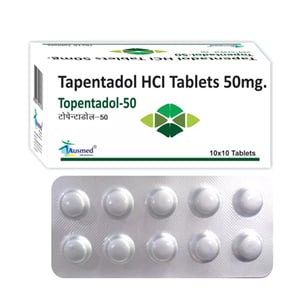acutap
Introduction to acutap
Acutap is a medication primarily used to manage moderate to severe pain. It is particularly effective for pain following surgery, injury, or chronic conditions like diabetic neuropathy, osteoarthritis, and fibromyalgia.
Composition of acutap
Acutap contains the active ingredient Tapentadol, which works by binding to opioid receptors and inhibiting the reuptake of norepinephrine, a chemical that helps control pain.
Uses of acutap
- Relief from moderate to severe pain
- Pain management after surgery
- Treatment of pain from injuries
- Management of chronic pain conditions like diabetic neuropathy
- Alleviation of osteoarthritis and fibromyalgia pain
Side effects of acutap
Common side effects:
- Dizziness
- Nausea
- Constipation
- Headache
- Drowsiness
Serious side effects:
- Difficulty breathing
- Low blood pressure
- Severe allergic reactions
Precautions of acutap
Acutap can cause life-threatening respiratory depression, especially at higher doses. It should not be used with alcohol or by individuals with severe asthma, breathing problems, or gastrointestinal blockage. Caution is advised for those with a history of substance abuse, the elderly, and individuals with liver or kidney issues.
How to Take acutap
- Start with a dose of 50 to 100 mg every 4 to 6 hours for adults
- Do not exceed a maximum of 500 mg per day
- Adjust dosage based on individual pain levels and tolerance
Conclusion of acutap
Acutap is a powerful medication for managing moderate to severe pain. While it is effective, it is important to use it responsibly and under medical supervision to avoid potential side effects and complications. Always follow your healthcare provider's instructions when using acutap.

Similar Medicines
More medicines by Comed Chemicals Ltd
Available in 2 variations

Acutap 50mg Tablet
strip of 10 tablets

Acutap 100mg Tablet
strip of 10 tablets
Disclaimer : This information is not a substitute for medical advice. Consult your healthcare provider before making any changes to your treatment . Do not ignore or delay professional medical advice based on anything you have seen or read on Medwiki.
acutap
Prescription Required
Manufacturer :
Comed Chemicals LtdComposition :
tapentadol











.svg)
